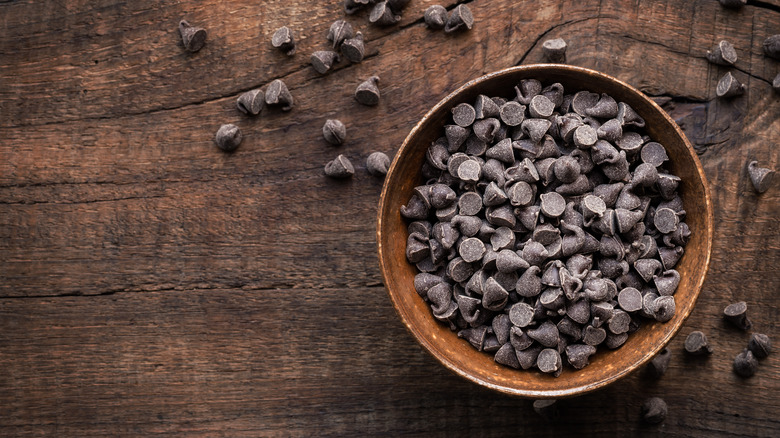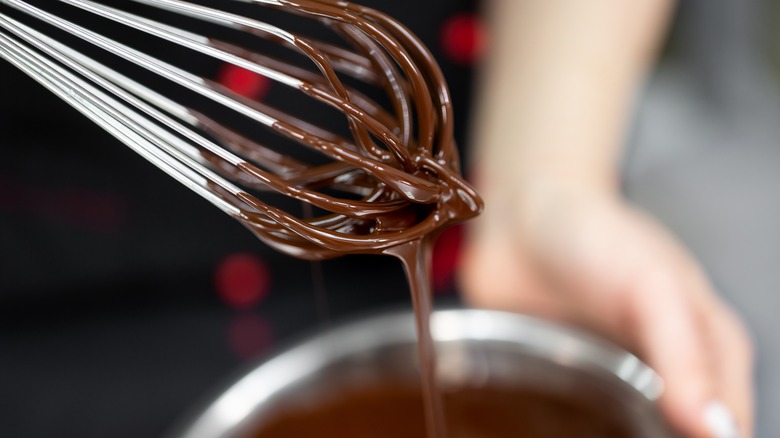The Most Important Thing To Know Before Melting Chocolate Chips
If you're known to drool over any and everything chocolate, you're certainly not alone. Beloved all around the world, the ancient treat made from roasted and ground cacao beans (via History) inspires great devotion — and a lot of afternoon cravings. In Switzerland, a large producer of high-quality chocolate, the average citizen inhaled nearly 20 pounds of the sweet stuff in 2017; Germany isn't far behind with 17.4 pounds per person; and in Sweden, it's around 14 pounds per person per year, according to Statista.
Chocolate shows up in our confections in a myriad of ways, from cocoa powder to chocolate chips to chunks of chocolate to cocoa nibs. But one of the most common ways chocolate adds its delights to desserts is in its melted form, which can be stirred into brownies, folded into a quick chocolate mousse, or simply drizzled over biscotti, fresh fruit, or loaf cake.
Chances are the type of chocolate you have on hand right now can be used for melting, but if you're looking to melt some chocolate chips, there's one thing to know about them first.
Chips melt differently due to added stabilizers
Have you ever thought about the fact that chocolate chips seem almost magical? After all, when you pull a tray of freshly baked cookies out of the oven, the chips will be all melty while they're still warm, but they'll harden right back up to their out-of-the-bag form once the cookies are fully cooled.
According to Kitchn, this is because chocolate chips contain added stabilizers that help them keep their shape even when they're heated. Typically a lecithin such as soy or sunflower, these stabilizers contribute to the fact that chocolate chips melt differently than a bar. Due to these stabilizers, chips will take longer to melt, and they'll also produce a somewhat thicker result once melted, the outlet notes.
If you want a really smooth, perfectly drizzle-able chocolate, it's best to reach for a bar of baking chocolate. But if chips are all you have on hand, they will certainly do in a pinch; you can melt them in the microwave in 30-second increments, or over a double boiler on the stovetop.

